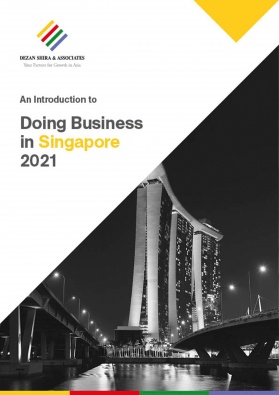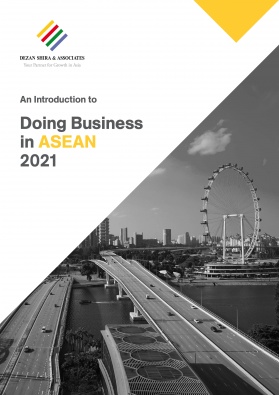Singapore and Thailand Launch Integrated Real Time Payment Systems
- Singapore and Thailand launched the world’s first linkage of real-time payment systems, which will facilitate faster and cheaper cross-border transfers.
- This collaboration is between the Monetary Authority of Singapore (MAS) and the Bank of Thailand (BOT) and will enable users of the two payment systems — PayNow in Singapore and PromptPay in Thailand.
- Users can send money daily from Singapore to Thailand, or vice versa, of up to S$1,000 (US$747) or THB 25,000 (US$801), by just using their mobile phone numbers.
- The PayNow-PromptPay linkage can serve as a blueprint for establishing payment networks throughout ASEAN.
On April 29, 2021, Singapore and Thailand launched the world’s first linkage of real-time payment systems, which will facilitate faster and cheaper cross-border transfers.
This pioneering collaboration between the Monetary Authority of Singapore (MAS) and the Bank of Thailand (BOT) will enable users of the two payment systems — PayNow in Singapore and PromptPay in Thailand — to send money daily from Singapore to Thailand, or vice versa, of up to S$1,000 (US$747) or THB25,000 (US$801), by just using their mobile phone numbers. The funds will be transferred within a matter of minutes.
The integrated system will make it easier to transfer funds compared to traditional remittance systems that require the recipient’s bank account details and full name. Furthermore, the linkage of the two systems aims to tackle several key pain points associated with traditional cross-border remittances, such as long transition times and high fees.The integrated system has a pilot group of seven participating banks, which are UOB, OCBC, and DBS from Singapore, as well as Siam Commercial, Krung Thai Bank, Kasikorn Bank, and Bangkok Bank from Thailand; MAS and BOT will inevitably scale the PayNow-PromptPay linkage to increase transfer limits and include more financial institutions. The aforementioned banks have committed to benchmark their fees against prevailing market rates with senders able to view the foreign exchange charges prior to transferring the funds.
Enhancing cross-border linkages with ASEAN
The PayNow-PromptPay linkage can serve as a blueprint for establishing payment networks throughout ASEAN and is a key collaboration under the ASEAN Payment Connectivity plan.
Under this plan, ASEAN is aiming to create seamless cross-border payments between members through the harmonization of payment infrastructure by 2025. The onset of the pandemic has prompted ASEAN businesses to try and accelerate this vision, considering the large adoption of digital payment platforms since 2020. Moreover, according to a 2020 report by Bain & Co, Temasek, and Google, Southeast Asia’s digital economy is on track to have a gross merchandise value of US$300 billion by 2025 — US$125 billion will be attributed to Indonesia alone.
Currently, digital payments in ASEAN are being facilitated by various sectors, most notably ride-hailing apps Gojek and Grab, in offering digital payments for logistics, delivery, and transportation services, among others. Many banks across Southeast Asia and financial technology companies have also introduced technology to support digital payments.
Challenges remain
However, challenges remain for ASEAN to realize financial integration and many of the digital payment providers are still unable to facilitate cross-border transactions.
ASEAN’s diversity has made it difficult to establish a standard for cross-border payments networks as each member is widely spread across the ease of doing business index. Thus, ASEAN does not have a common and compatible infrastructure that is in compliance with international standards to drive interoperability — which is a vital prerequisite to any cross-border payment system.
The Single Euro Payments Area (SEPA), for instance, was introduced for credit transfers in 2008 and was fully implemented by 2014 in the Euro area. The pace of development of SEPA was assisted by the fact that participating countries were already members of the European Union and most use the Euro currency. Further, SEPA’s infrastructure is regulated by European Central Bank, which also regulates Europe’s financial industry.
ASEAN countries do not have a common currency and each country has its own financial regulator meaning agreements to a common framework remain challenging.
The huge potential of ASEAN’s digital payments sector
Despite the challenges, the current needs of consumers and businesses in ASEAN propel the group to realize the integration of its digital payment systems.
Integrating real-time payment systems will help digital payment providers access ASEAN’s large pool of underbanked and unbanked population, which approximately totals 290 million, the majority of whom are in Indonesia.
Digital payment providers can plug this gap by introducing new financial models, such as microloans, too many underserved SMEs and enable them to access a broader customer base.
About Us
ASEAN Briefing is produced by Dezan Shira & Associates. The firm assists foreign investors throughout Asia and maintains offices throughout ASEAN, including in Singapore, Hanoi, Ho Chi Minh City, and Da Nang in Vietnam, Munich, and Esen in Germany, Boston, and Salt Lake City in the United States, Milan, Conegliano, and Udine in Italy, in addition to Jakarta, and Batam in Indonesia. We also have partner firms in Malaysia, Bangladesh, the Philippines, and Thailand as well as our practices in China and India. Please contact us at asia@dezshira.com or visit our website at www.dezshira.com.
- Previous Article Minimum Wages in ASEAN for 2021
- Next Article Vietnam and Canada Trade: Leveraging the CPTPP








